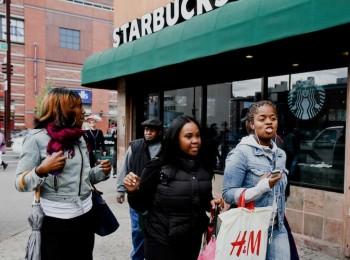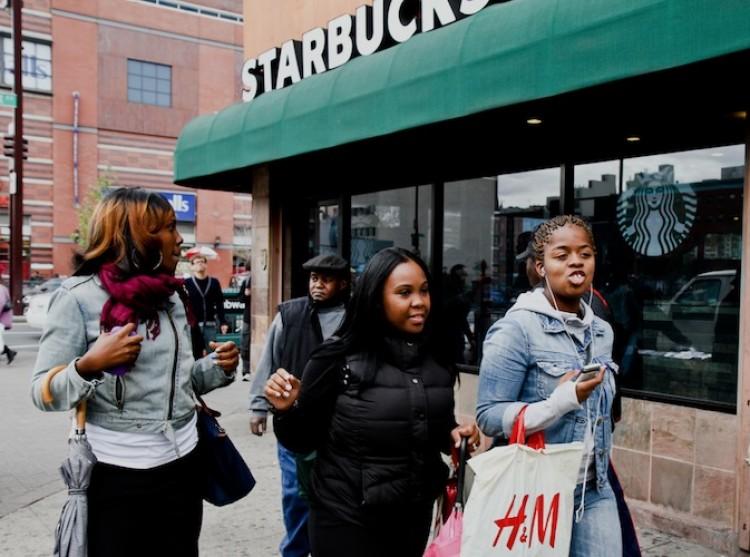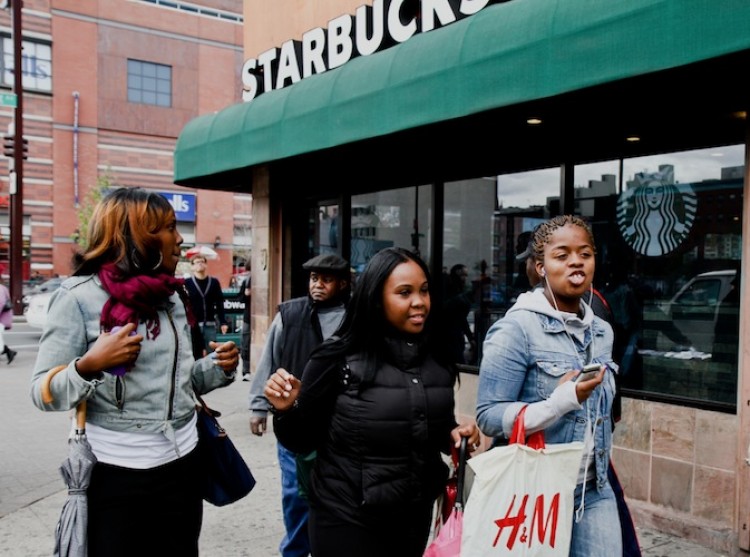Harlem’s Mixed Feelings About Starbucks
Over the last decade, Starbucks coffee shops have found their place in the heart of Harlem amid bodegas, street vendors blaring soul music, and hair salons offering braiding and weaves.

People walk by Starbucks on the corner of Adam Clayton Powell Boulevard and 125th Street on Oct. 4. Starbucks announced that this location will share profits with a community organization. Ivan Pentchoukov/The Epoch Times
|Updated:






